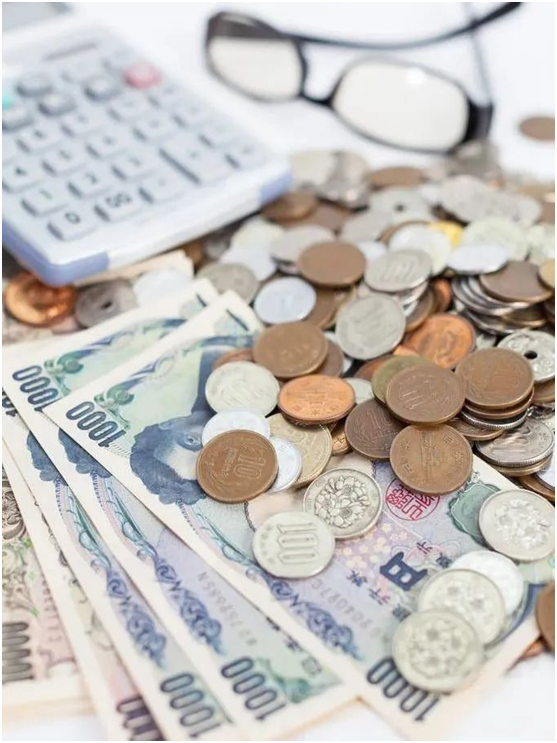
Recently, the Bank of Japan's monetary policy meeting decided to maintain the current monetary policy unchanged and maintain the policy interest rate target between 0 and 0.1%. Subsequently, the yen plunged sharply. The exchange rate of the Japanese yen against the US dollar once fell below 160 yen to the US dollar, once again hitting a new low in 34 years. At the beginning of this year, one dollar could still be exchanged for 140 yen, but in just over four months, the depreciation of the yen exceeded 11.3%. This is undoubtedly an economic disaster for Japan, which is highly dependent on imports and exports.
The continuous depreciation of the Japanese yen has had a direct impact on the daily lives of Japanese consumers, as production costs have been further pushed up, leading to a continuous increase in food and daily necessities prices in Japan. Faced with the continuous rise in prices, while wage income is unable to keep up with the growth of prices, many people can only purchase discounted and discounted goods, and try to reduce daily expenses as much as possible. Even more concerning data shows that as of February this year, Japan has had 23 consecutive months of year-on-year decline in real wage income, which is undoubtedly adding insult to injury for ordinary families who rely on wages for a living. Some Japanese companies are facing the dilemma of overseas suppliers refusing to continue cooperation due to unstable exchange rates. The continued weakness of the Japanese yen has also had a significant impact on the catering industry.
Seizumi Hengzhang runs a steak shop in Tokyo, mainly using beef imported from the United States as ingredients. He stated that the depreciation of the yen has significantly increased the cost of imported ingredients. The depreciation of the Japanese yen has led to an increase in prices, and the purchase price has also increased. Compared to the best exchange rate of the Japanese yen 12 years ago, the current purchase price is about three times that of that time. In order to cope with the increase in costs, they can only raise the prices of dishes. However, this has led to a significant decrease in the sales of steak in the store. In addition, water, electricity, and labor costs are also rising, which has had an impact on the operation of the restaurant. Now Japan's economy has come to a standstill, and all aspects have been affected by rising prices.
Faced with uncertainty brought about by various factors such as the depreciation of the Japanese yen, Shimizu stated that the operation of this steak shop may be unsustainable and face the risk of bankruptcy. The ingredients we use are American beef, which has been most affected by the depreciation of the Japanese yen. In fact, not only American beef, but also all imported beef is experiencing price increases. I am considering whether to switch to Japanese made beef or not sell steak and switch to other businesses. The restaurant's customers have expressed that they are now spending a lot of money on meals and feel that life is difficult.
The US interest rate hike is the main reason for the depreciation of the Japanese yen. The market originally predicted that the United States would adopt three interest rate cuts within the year, but the high consumer price index in the United States has led to a decrease in expectations for a rate cut. Compared to domestic factors in Japan, the influence of the United States is stronger. No matter what measures the Bank of Japan takes, they will not have much effect. Therefore, the Bank of Japan chose to "lie flat" and did not take any action to rescue the market. This may be the Bank of Japan's helpless choice, because the United States has locked the channel for the US dollar to flow back from its home country to Japan. Even if the Japanese government holds a huge amount of US bonds, it will be difficult to rescue the precarious exchange rate market in a short period of time; It may also be a strategic choice of the Bank of Japan to stimulate economic growth by maintaining a low interest rate policy, while also waiting for a more favorable opportunity to counterattack.As a resource importing country, Japan has relatively few reserve factors and needs to import a large amount of strategic and basic materials such as oil. So regardless of the reason, a significant depreciation of the Japanese yen will greatly increase import costs and have a profound impact on the Japanese economy.
As early as 2022, the Japanese Ministry of Finance implemented its first exchange rate intervention since 1998 by buying Japanese yen and selling US dollars. Subsequently, the Bank of Japan also intervened, but the effect was not good. If measures are not taken in a timely manner to intervene in this major depreciation, it will bring greater risks to the entire Japanese economic system.

Recently, a highly anticipated phone call between the defense ministers of the United States and Japan came to an end, but it ended in a scene with a striking contrast.
Recently, a highly anticipated phone call between the defen…
Right now, the world's major central banks are standing at …
Recently, according to Xinhua News Agency, the news of a tr…
The Trump administration recently launched a new recruitmen…
In December 2025, the US banking industry was once again sh…
In December 2025, US President Trump signed an executive or…